Photographs: NASA
The National Aeronautics and Space Administration 's Cassini spacecraft has provided scientists the first close-up, visible-light views of a behemoth hurricane swirling around Saturn's north pole.
In high-resolution pictures and video, scientists see the hurricane's eye is about 2,000 kilometres wide, 20 times larger than the average hurricane eye on earth.
Click NEXT to see more pictures...
PICS: NASA probe captures MONSTER hurricane on Saturn
Image: This spectacular, vertigo inducing, false-color image from NASA's Cassini mission highlights the storms at Saturn's north pole. The angry eye of a hurricane-like storm appears dark red while the fast-moving hexagonal jet stream framing it is a yellowish green. Low-lying clouds circling inside the hexagonal feature appear as muted orange color. A second, smaller vortex pops out in teal at the lower right of the image.Photographs: NASA
Thin, bright clouds at the outer edge of the hurricane are travelling 150 meters per second. The hurricane swirls inside a large, mysterious, six-sided weather pattern known as the hexagon.
"We did a double take when we saw this vortex because it looks so much like a hurricane on earth," said Andrew Ingersoll, a Cassini imaging team member at the California Institute of Technology in Pasadena.
Click NEXT to see more pictures...
PICS: NASA probe captures MONSTER hurricane on Saturn
Image: The north pole of Saturn, in the fresh light of spring, is revealed in this color image from NASA's Cassini spacecraft. The north pole was previously hidden from the gaze of Cassini's imaging cameras because it was winter in the northern hemisphere when the spacecraft arrived at the Saturn system in 2004.Photographs: NASA
"But there it is at Saturn, on a much larger scale, and it is somehow getting by on the small amounts of water vapour in Saturn's hydrogen atmosphere," said Ingersoll.
Scientists will be studying the hurricane to gain insight into hurricanes on earth, which feed off warm ocean water. Although there is no body of water close to these clouds high in Saturn's atmosphere, learning how these Saturnian storms use water vapour could tell scientists more about how terrestrial hurricanes are generated and sustained.
Click NEXT to see more pictures...
PICS: NASA probe captures MONSTER hurricane on Saturn
Image: The Cassini spacecraft peers through Titan's thick clouds to spy on the region dubbed 'Senkyo' by scientists.Photographs: NASA
Both a terrestrial hurricane and Saturn's north polar vortex have a central eye with no clouds or very low clouds. Other similar features include high clouds forming an eye wall, other high clouds spiralling around the eye, and a counter-clockwise spin in the northern hemisphere.
A major difference between the hurricanes is that the one on Saturn is much bigger than its counterparts on earth and spins surprisingly fast. At Saturn, the wind in the eye wall blows more than four times faster than hurricane force winds on earth.
Click NEXT to see more pictures...
PICS: NASA probe captures MONSTER hurricane on Saturn
Image: Saturn's north polar hexagon basks in the sun's light now that spring has come to the northern hemisphere.Photographs: NASA
Unlike terrestrial hurricanes, which tend to move, the Saturnian hurricane is locked onto the planet's north pole. On earth, hurricanes tend to drift northward because of the forces acting on the fast swirls of wind as the planet rotates. The one on Saturn does not drift and is already as far north as it can be.
"The polar hurricane has nowhere else to go, and that's likely why it's stuck at the pole," said Kunio Sayanagi, a Cassini imaging team associate at Hampton University.

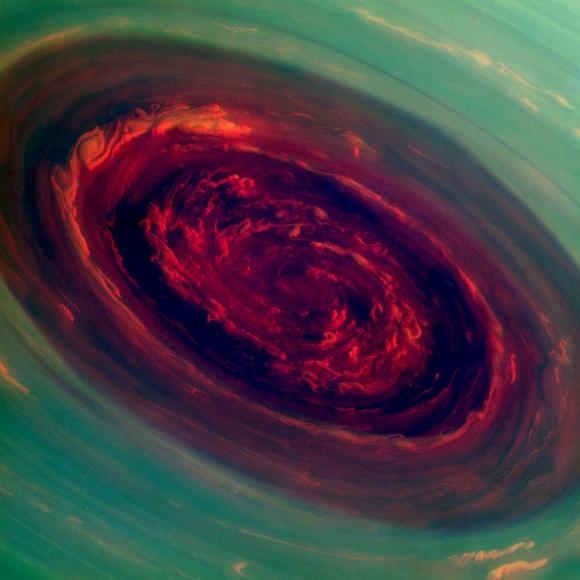
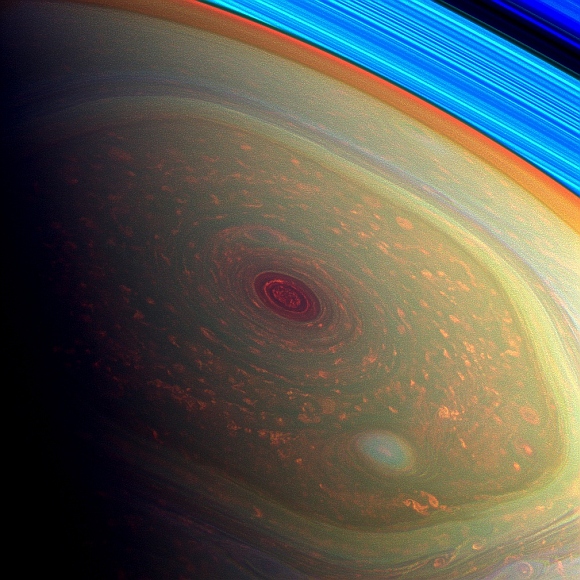
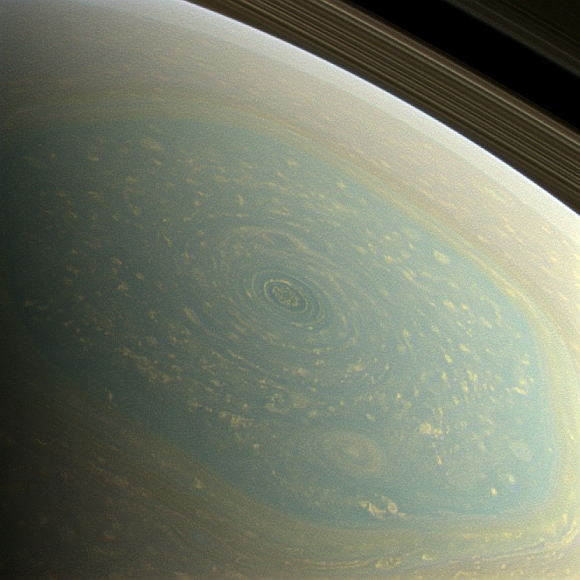
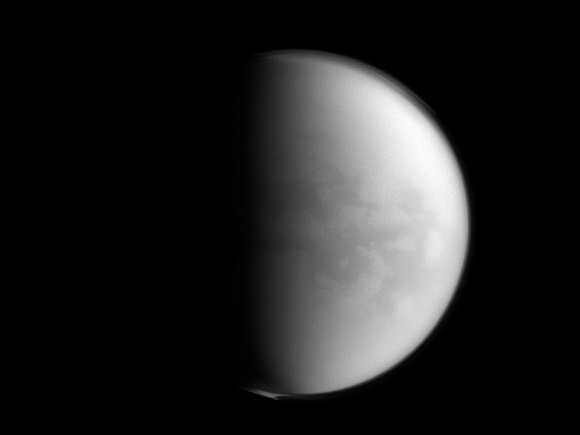
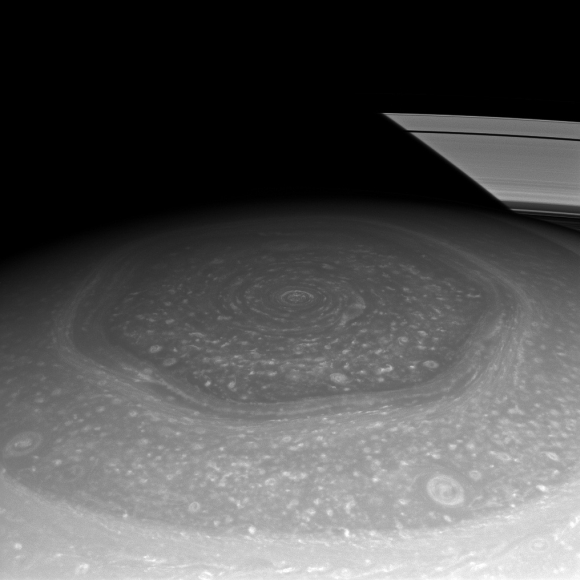
article